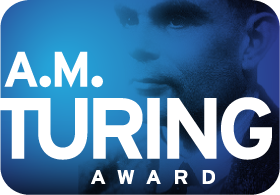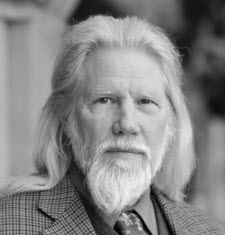
BIRTH:
5 June 1944, Washington, D.C., USA
EDUCATION:
B.S. (Mathematics, Massachusetts Institute of Technology, 1965). Honorary Ph.D. (Swiss Federal Institute of Technology, 1992).
EXPERIENCE:
MITRE Corporation (Research Assistant, 1965-1969); Stanford University, Artificial Intelligence Laboratory (Research Programmer 1969-1973); Stanford University (Graduate Student and Research Assistant, 1975-1978); BNR, Inc./Northern Telecom (Manager, Secure Systems Research, 1978-1991); Sun Microsystems (Chief Security Officer, Distinguished Engineer, Sun Microsystems Fellow, 1991-2009); Stanford University (Visiting Scholar and Affiliate, 2009-2012); Stanford University, Center for International Security and Cooperation (Consulting Scholar).
HONORS AND AWARDS:
IEEE Information Theory Society Golden Jubilee Award for Technological Innovation, with M. Hellman (1998); NIST/NSA National Computer Systems Security Award, with M. Hellman (1996); Franklin Institute’s Levy Medal, with M. Hellman (1997); ACM Kannellakis Award, with M. Hellman (1997); IEEE Information Theory Society Golden Jubilee Award, with M. Hellman (1998); IEEE Kobayashi Award, with M. Hellman and R. Merkle (1999); Fellow, International Association for Cryptographic Research (2004); IEEE Richard W. Hamming Medal, with M. Hellman and R. Merkle (2010); ACM Turing Award, with M. Hellman (2015).
Whitfield Diffie

- Diffie, W. “The First Ten Years of Public-Key Cryptography.” Proceedings of the IEEE, vol. 76, no. 5, May 1988, pp. 560-577.
In assessing public-key’s first decade, Diffie offers perspective on how early public-key systems have common characteristics with “new and different” ones having little success thus far. He also highlights the theoretical contributions of public key to understanding security protocols with “proven security characteristics.”
- Diffie, W. and M.E. Hellman. “New Directions in Cryptography.” IEEE Transactions on Information Theory Vol. IT-22, no. 6, November 1976, pp. 644-654. [The first part of block quote is from p. 644, while the continuation (on authentication) is from p. 649.]
This is the article that is the basis for public-key cryptography and is generally viewed as the principal basis of the many distinguished awards Hellman and Diffie have received, including the 2015 ACM Turing Award. It represents a brilliant achievement that solved the problem of key distribution and digital signatures (authentication), setting in motion the future developments/inventions—especially the RSA algorithm—that have had a profound impact on encrypted communication and digital authentication in practice worldwide.
- Diffie, W. and M.E. Hellman. “Exhaustive Cryptanalysis of the NBS Data Encryption Standard.” Computer vol. Vol. 10, no. 6 June 1977, pp. 74-84.
This is the most extensive of Hellman and Diffie’s early critiques of the National Bureau of Standard’s Data Encryption Standard or DES. In this paper they give point-by-point responses to critiques of their early objections to the Data Encryption Standard.
- Diffie, W. and S. Landau. Privacy on the Line: The Politics of Wiretapping and Encryption. (Cambridge, MIT Press, 1998).
- Hellman, M.E. Oral History Interview, conducted by Jeffrey R. Yost, 22 November 2004, Stanford, California. CBI OH 375. Charles Babbage Institute, University of Minnesota.
This extensive career-spanning (58 page) oral history I conducted with Martin E. Hellman is the most comprehensive, publicly available interview with him. In the interview, Hellman discusses Diffie and their collaborative work.
- Levy, S. Crypto. How the Code Rebels Beat the Government—Saving Privacy in the Digital Age. (New York: Viking, 2001).
This is an engaging journalistic account that tells the story of the development of public-key cryptography by Diffie and Hellman, as well as contributions made by Ralph Merkle and MIT scientists and mathematicians Ronald Rivest, Adi Shamir, and Leonard Adleman. It is particularly useful for biographical information on Diffie.
- Schneier, B. Applied Cryptography: Protocols, Algorighms, and Source Code in C. (New York: John Wiley and Sons, Inc., 1994). [Quoted material and statement on the Diffie-Hellman protocol for public-key cryptography is from p. 275.]
This is an excellent textbook on cryptography (praised by Martin Hellman) that offers a very clear and concise statement of the Diffie-Hellman protocol for their public-key cryptosystem.
- Yost, J.R. “A History of Computer Security Standards,” in K. de Leeuw and J. Bergstra, eds. The History of Information Security: A Comprehensive Handbook. (Amsterdam, Elsevier Science, 2007), pp. 595-622.
This addresses the history of standards on both the encryption side (DES) and operating system side (work of the Department of Defense/NSA National Computer Security Center)—drawing on interviews I conducted with Willis Ware, Martin Hellman, James Bidzos, as well as many other resources.




























 THE A.M. TURING AWARD
THE A.M. TURING AWARD